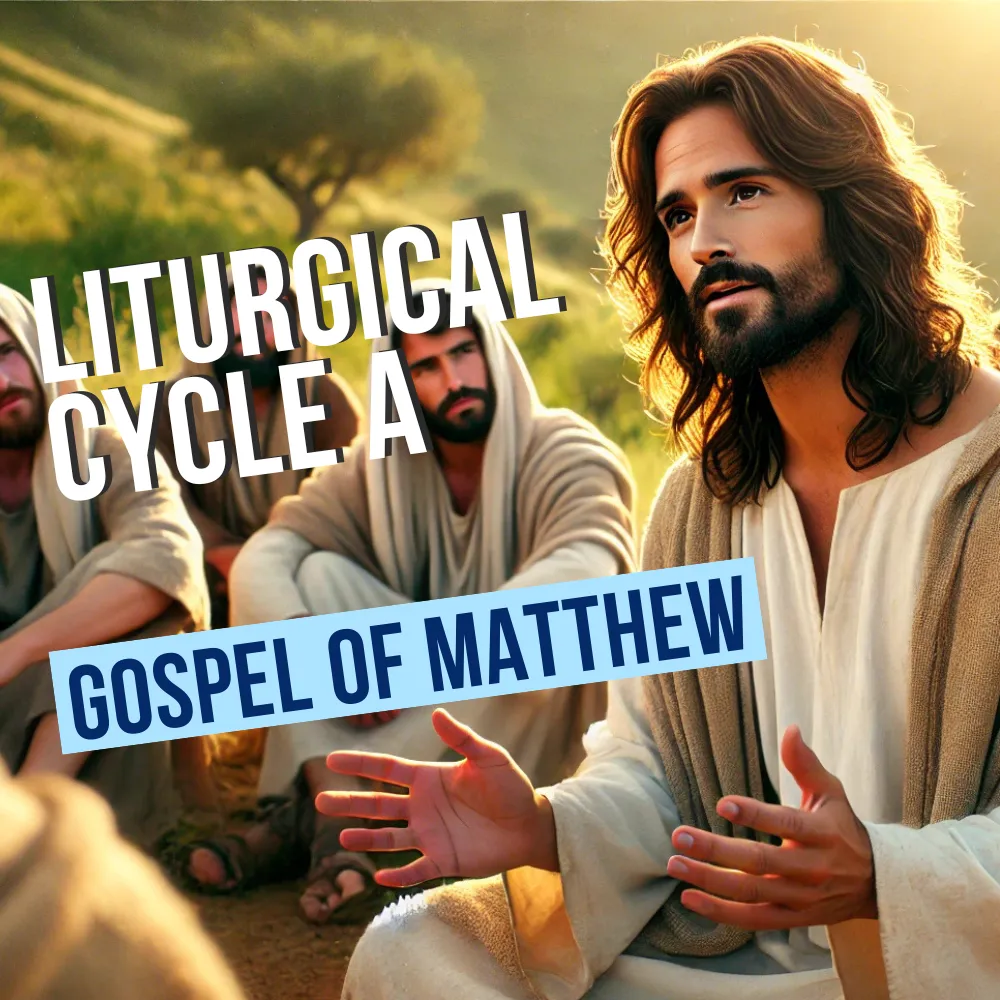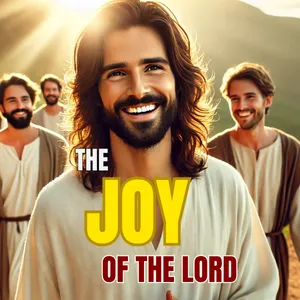Liturgical Cycle C - The Gospel of Luke
Liturgical Cycle C, centered on the Gospel of Luke, emphasizes Jesus as the compassionate Savior of all, with a special focus and care for the marginalized, such as the poor, sinners, and outcasts. Known for its rich storytelling, Luke contains the most parables of any Gospel - including unique ones like the Good Samaritan and the Prodigal Son, which illustrate God’s love and mercy. The liturgical focus encourages the faithful to embody compassion, joy, and inclusivity, reflecting Christ’s mission to reach all people with God’s boundless mercy.
To Enlarge the Videos Below,
Just CLICK on the Box on the Right Lower Corner
December 1, 2024 Sunday School Gospel Cartoon (1st Sunday of Advent) Luke 21:25 -28, 34-36
December 8, 2024 Sunday School Gospel Cartoon (2nd Sunday of Advent) Luke 3:1-6
December 15, 2024 Sunday School Gospel Cartoon (3rd Sunday of Advent) Luke 3:10-18
December 22, 2024 Sunday School Gospel Cartoon (4th Sunday of Advent) Luke 1:39 -45
December 25, 2024 Sunday School Gospel Cartoon Christmas Episode from Luke 2:1-14
December 29, 2024 Sunday School Gospel Cartoon (Feast of the Holy Family) Lk 2:41-52
January 1, 2025 Solemnity of Mary Mother of God (Luke 2:16-21)
January 5, 2025 The Epiphany of the Lord
(Matthew 2:1-12)
January 12, 2025 The Baptism of the Lord
(Luke 3:15 -16, 21-22)
January 19, 2025 The Wedding At Cana
(John 2:1-11) - Second Sunday in Ordinary Time
January 26, 2025 Jesus is the Anointed One
(Luke 1:1-4 and Luke 4:14 -21) - Third Sunday in Ordinary Time
February 9, 2025 Jesus Calls The First Disciples
(Luke 5:1-11) - Fifth Sunday in Ordinary Time
February 16, 2025 The Beatitudes
(Luke 6:17 and Luke 6:20-26)
- Sixth Sunday in Ordinary Time
February 23, 2025 Love Your Enemies
(Luke 6:27-38)
- Seventh Sunday in Ordinary Time
March 2, 2025 A Tree and Its Fruit
(Luke 6:39-45)
- Eighth Sunday in Ordinary Time
March 9, 2025 The Temptation of Jesus
(Luke 4:1-13)
- First Sunday of Lent
March 16, 2025 The Transfiguration of Jesus
(Luke 9:28b-36)
- Second Sunday of Lent
March 23, 2025 The Parable of the Barren Fig Tree
(Luke 13:1-9)
- Third Sunday of Lent
March 30, 2025 The Parable of the Prodigal Son
(Luke 15:1-3; 11-32)
- Fourth Sunday of Lent
April 6, 2025 The Woman Caught in Adultery
(John 8:1-11)
- Fifth Sunday of Lent
Special Episode: Palm Sunday
April 13, 2025 Palm Sunday of the Passion of the Lord
(Luke 22:14-23)
- Palm Sunday
April 17, 2025 Jesus washes the disciples' feet
(John 13:1-15)
- Holy Thursday
April 18, 2025 The Betrayal and Arrest of Jesus
(John 18:1-19; 42)
- Good Friday
Special Episode: The Passion of Christ
April 20, 2025 The Resurrection of Jesus
(Luke 24:1-12)
-Easter Sunday
April 27, 2025 Divine Mercy Sunday
(John 20:19-31)
-Second Sunday of Easter
May 4, 2025 "Simon, son of John, do you love me?"
(John 21:1-19)
-Third Sunday of Easter
May 11, 2025 My Sheep Hear My Voice
(John 10:27-30)
-Fourth Sunday of Easter
May 18, 2025 Love One Another
(John 13:31-33A, 34-35)
-Fifth Sunday of Easter
May 25, 2025 The Holy Spirit
(John 14:23-29)
-Sixth Sunday of Easter
June 1, 2025 The Ascension of The Lord
(Luke 24:46-53)
-Solemnity
June 8, 2025 Pentecost Sunday
(John 20:19-23)
-Solemnity
June 15, 2025 Holy Trinity Sunday
(John 16:12-15)
-Solemnity
June 22, 2025 Corpus Christi Sunday
(Luke 9:11-17)
-Solemnity
July 6, 2025 Seventy Disciples
(Luke 10:1-12; 17-20)
-14th Sunday in Ordinary Time
July 13, 2025 The Good Samaritan
(Luke 10:25-37)
-15th Sunday in Ordinary Time
July 20, 2025 The Good Samaritan
(Luke 10:38-42)
-16th Sunday in Ordinary Time
July 27, 2025 The Lord's Prayer
(Luke 11:1-13)
-17th Sunday in Ordinary Time

Liturgical Cycle A (2025-2026)
Liturgical Cycle A focuses on the Gospel of Matthew, highlighting Jesus as the Messiah and fulfillment of Old Testament prophecies, the authoritative teacher, and the King who establishes the Kingdom of Heaven. Central themes include the call to discipleship, humility, and righteousness, with major teachings like the Sermon on the Mount offering guidance on prayer, mercy, and ethical living. Year A invites believers to deepen their faith, follow Christ’s teachings, and live out His call to build a compassionate, service-oriented community.


Liturgical Cycle B (2026-2027)
Liturgical Cycle B centers on the Gospel of Mark, the shortest and most action-driven of the Gospels. Mark emphasizes Jesus as the Suffering Servant and Son of God, focusing on His deeds more than His words. It presents a vivid and immediate portrayal of Jesus' ministry, showcasing His divine authority through miracles, healings, and teachings.

Additional Resources





